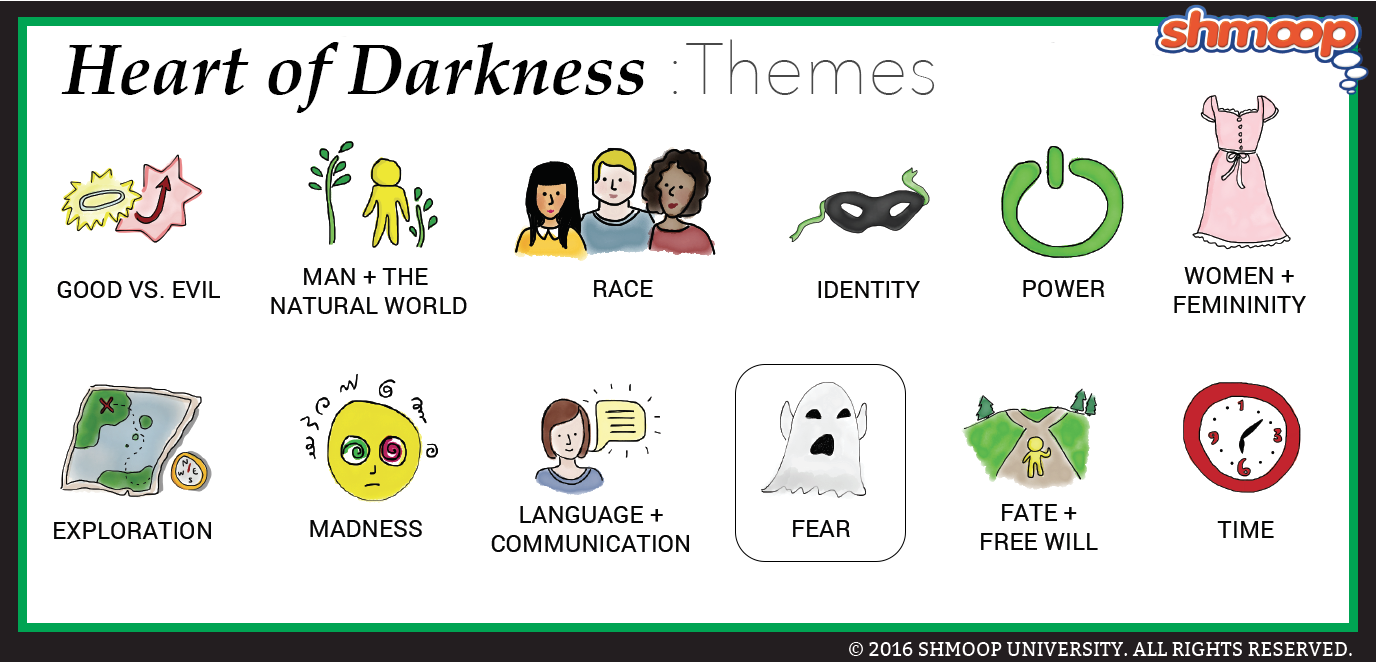 (Click the themes infographic to download.)
(Click the themes infographic to download.)
The white pilgrims go into the interior in constant fear of their surroundings. Their trepidation is so strong that they develop a paranoia of the wilderness – its eerie silences and sudden blinding fogs, its impenetrable darkness and shadowy savages. Being so far removed from any vestige of civilization as they know it only adds to their sense of helplessness. Their fear makes them do foolish things on impulse. Fear also contributes to their eventual madness. It pervades the entire novel and seems to seep into the environment itself so that everything is not only terror-inducing, but morally disturbing as well.
Questions About Fear
- What exactly do the white men fear about the black native Africans? How is this enhanced by the jungle environment?
- What do the men fear about Kurtz? What makes them go after him anyway? Why does Kurtz pose such a big threat to them?
- How does Conrad enhance our fear and awe of Kurtz? What physical and mental characteristics does Kurtz display that render this man particularly disturbing to our sense of normality and morality?
- What does Kurtz fear? What exactly is "The horror! The horror!" that he dies fighting?
Chew on This
Conrad stokes readers’ fear of the interior by narrating the death of Fresleven, imposing Marlow’s discomfort, and rendering nature a hostile force to the white pilgrims.
Kurtz strikes readers as particularly frightening because of his eerie combination of human and ghostly features and his strangely logical, yet brutal, flow of thought.